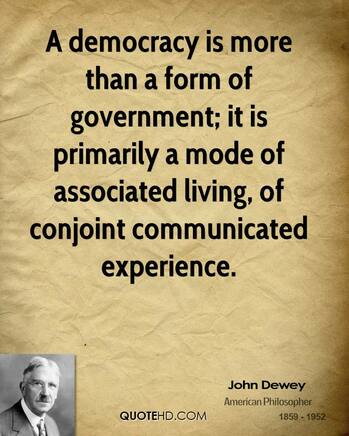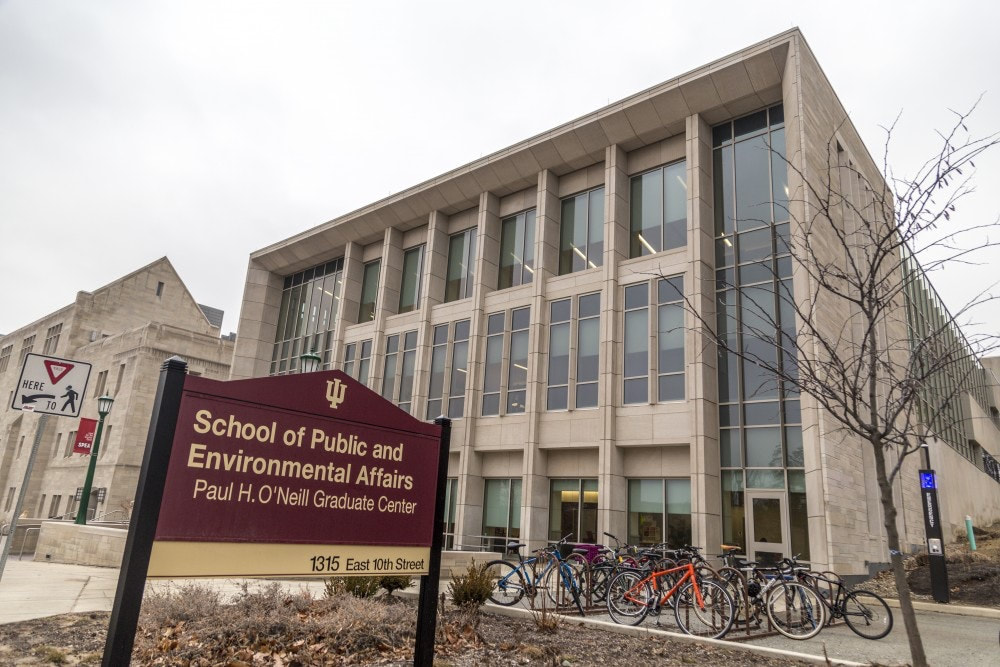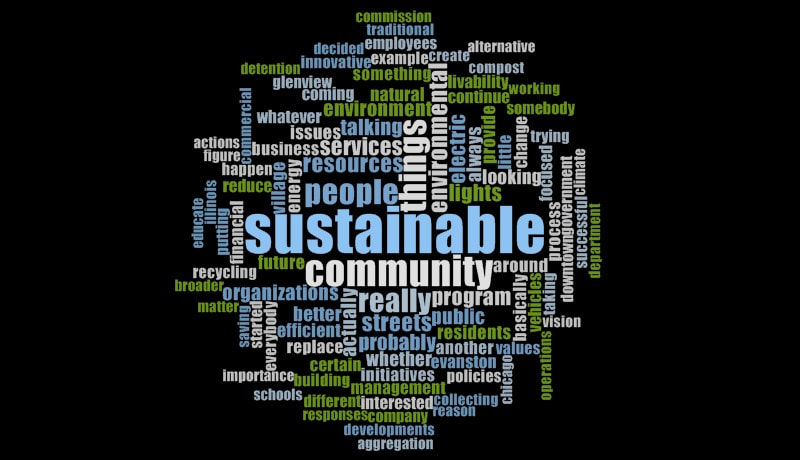 Public managers are unresponsive, routinized bureaucrats. Or, maybe they are attuned to social needs and equitable service-delivery. Managers resist change and love process. Or, they are problem-oriented, entrepreneurial agents interested in reforming their organizations. These contrasting stereotypes have been with us for some time. They shape mass and elite perceptions of public employees and drive wave after wave of government "reform." For four decades, researchers have studied the role local government managers play in shaping organizational missions, objectives and activities. As Jered Carr (2015) noted in his Public Administration Review literature synthesis, the consensus view is that the council-manager form of government does influence public policy choices at the margins. Empowered managers steer the ship of state toward a more equitable distribution of resources in some contexts. But does this knowledge have any practical use? Does it help managers make decisions? Does it help academics address the “big questions” of how to improve governance? These are questions researchers interested in management and governance regularly revisit, particularly in these troubled, politically tribalized times. One way I am trying to develop a “general theory” of managerial behavior (O’Toole and Meier 2014) is by exploring relationships among institutional arrangements, organizational context, and strategic management. This involves identifying when managers may shift between proactively or defensively positioning organizations to respond to major threats. In an article recently published in Policy Studies Journal, I describe this concept as “managerial friction” and show how it is measurable through incremental and punctuated changes in land-use policy (Deslatte 2018). The idea is that public managers have some ability to move policy processes out of incrementalism, even when bureaucratic lethargy acts as a drag (Deslatte, Tavares, and Feiock 2016). Studying Florida comprehensive plan amendments over a turbulent time period (2002-2010), the study synthesized theories of political markets and punctuated policy change to explain why local government managers may shift land-use management strategies to capture desirable growth or stave off undesirable development. Those of us who study policy and management are quite effective idea appropriators. This idea of punctuated policy change borrows heavily from evolutionary biology. But there are always limits to this kind of borrowing. Prindle (2012) cautioned scholars appropriating the concept of punctuated equilibrium from paleontology that, while stripping the metaphor of all content from the original theory of Darwinian speciation, they had never identified the mechanisms by which human choices were translated into mechanical outcomes “without losing the symbolic and emotional processing that is its substance” (p. 37). In other words, how do we build better bridges between macro-level outcomes and the micro-level behavioral processes underlying them? The concept of managerial friction — reflecting the agency of managers shifting between inward and outward strategies -- is one emotive construct that provides a bridge. But understanding how the cognitive biases of managers are aggregated into such organizational behavior presents a clear future path for this research. Ultimately, managerial friction must be further unpacked as a behavioral mechanism of human choice. One conclusion I came to at the end of this project was that this type of institutional research had probably run its course at this “macro” level without an infusion of brain-level insights. This isn’t a novel or new idea; it’s Herbert Simon stuff. In recent years, considerable efforts have been made within public administration to apply theories from social psychology and behavioral economics to the study of the minds of managers and citizens (Grimmelikhuijsen et al. 2017; James, Jilke, and Van Ryzin 2017). At the same time, criticism from within and outside the field has asserted public administration has shied away from asking “big questions” and become less of a player in important decisions of governance (Fukuyama 2004; Roberts 2017). Some have even cautioned about the emergence of a “schism” in the field between micro- and macro-level researchers, leading to competing conferences, journals, and networks for scholarly efforts (Moynihan 2018). I’d like to work from a premise that answering big questions and regaining a seat at the governance table requires a focus on “applied theory,” which attempts to solve real-world problems. Applied theory here is defined as an “epistemological tool box” approach scholars may use to explain administrative phenomena of practical importance (Bendor 2015). That is, researchers interested in applied theory are animated to identify problems, select theories, and take analytic approaches with pragmatism in mind. They are less concerned with cordoning themselves off into methodological tribes then in solving practical problems through whatever methodological tools are necessary or readily available to researchers. Insights from research need to scale, both up and down, in order to yield practical results. Public administration is by definition an interdisciplinary, explicitly normative, problem-oriented field. Theories of bureaucratic control, institutions, collaborative governance, public management, and decision-making each share an orientation toward what John Dewey might call “transactional realism.” This means they encompass both an ideal for what is desired as a society and an appreciation of what is realistically possible (Dewey 1984). When a program or policy fails to produce expected results, the explanation rests on a detailed examination of the program or policy design, simulations of outcomes under varying conditions or contexts, and a theory of policy design or administrative behavior which integrates outputs of the model with the specifics of the case under investigation. Growth management in Florida, for instance, is a tale of good and bad intentions, policy development, implementation failures, and the work of local governments and state-level actors to reach consensus on what outcomes were desirable or achievable for taming the growth machine in a mega-state. Evaluating the success of this massive, multi-decade policy effort requires analysis at many levels, and theories of the managerial role are only capturing part of the story. Nevertheless, one practical insight from my research is that local government managers -- through both strategic planning (the routines) and rapid adjustments to these plans along the way (the entrepreneurial side) -- held considerable sway over growth-management outcomes despite a lack of state funding and constant interference from politicians in Tallahassee. But was it successful? This requires a deeper dive into how stakeholders define success -- and I would argue now in hindsight, a different epistemological approach to generating knowledge. Ok, you’ve read this far, so please stay with me. Dewey’s pragmatism as a philosophy of science depends on an interaction or experience with the phenomena of interest. This is not a radical leap. Researchers interested in individuals, organizations, or institutional arrangements may all share a normative bent, an experiential orientation, and a concern with both structure and cognition. And at a basic level, they are all interested in problems associated with allocation of attention, information-processing, and decision-making. At its inception, followers of scientific management were focused on identifying principles to enhance organizational outcomes, and they immersed themselves in factory warehouses. Today, public management remains focused on performance, but is becoming more experimentally oriented and focused on the motivated reasoning and cognitive limits of managers, street-level bureaucrats, elected officials, and the public (Baekgaard et al. 2017; James and Van Ryzin 2017; Olsen 2017). There are many examples in the field which demonstrate the complex interconnections between micro- and macro-level phenomena. Theories of bureaucratic politics and control focus on how to preserve or enhance administrative accountability, recognizing the paradox that exercising greater control over bureaucracies can inhibit performance (Miller and Whitford 2016). Institutional theory focuses on how structure, rules, and norms influence organizational processes, choices, behaviors, and outcomes. But work examining ecologies of institutions and barriers to institutional collective-action have recognized the less-understood role that cognitive limitations, biases, groupthink and limited attention spans play in collaborative governance (Deslatte and Feiock 2018; Mewhirter, Lubell, and Berardo 2018). Normative decision theory has also undergone a transformation from developing heuristics or tools for humans to make more rational choices to today’s pivot to machine learning and artificial intelligence. But what overarching lessons for public administration can we tease out from these examples that attempt to bridge theories of the individual with organizational and/or institutional theory? What happens when our theoretical focus crosses over from micro to macro levels? How can we do this better? This leads me back to the much-maligned public manager. From my view, research on organizational strategies, performance, value-creation, and policy choices all dance around a logic of information-processing without enough attention to how brain-level phenomena can affect these outcomes. For instance, here’s an experimental study which was just published in the Journal of Behavioral Public Administration on citizen assessments of local government performance in a federal, energy efficiency program (Deslatte 2019). One practical insight from this study is that managers could do a much better job of selling their policy successes to the public. But this kind of practical insight rests on two deeper bodies of research -- institutional insights into how authority is distributed in governments and capacity limits, as well as behavioral work on partisan motivated reasoning -- which help explain why managers fail to do so. Here, institutional context isn't just a control variable, context is critical. For behavioral research to be practically useful, it needs to account for this context. It needs to test for effects of attitudes, beliefs and behaviors under varying institutional contexts. Likewise, institutional work depends on shared meaning and experience. As public administration develops the tools, training and methodological sophistication for broader, behavioral research, my own bias is that these efforts should remain tethered to the practical, problem-orientation from which our field originated. This will keep our pursuit of knowledge grounded in the applied. In other words, theory based on pragmatism or “transactional realism” means finding behavioral applications for our research regardless of whether we can fully elucidate the causal mechanisms. I’m not suggesting we stop trying to pursue general science; but, public administration researchers are not great in numbers, and our ability to develop scientific paradigms is limited. Here’s my belated toast to 2019 and to hoping we can successfully motivate our own pragmatism by bridging micro-and macro-approaches to the big questions of governance and management.
4 Comments
|
AuthorI work as an Assistant Professor at the O'Neill School of Public and Environmental Affairs at Indiana University Bloomington. There, I direct the MGMT Lab. Archives
January 2023
Categories |


 RSS Feed
RSS Feed
